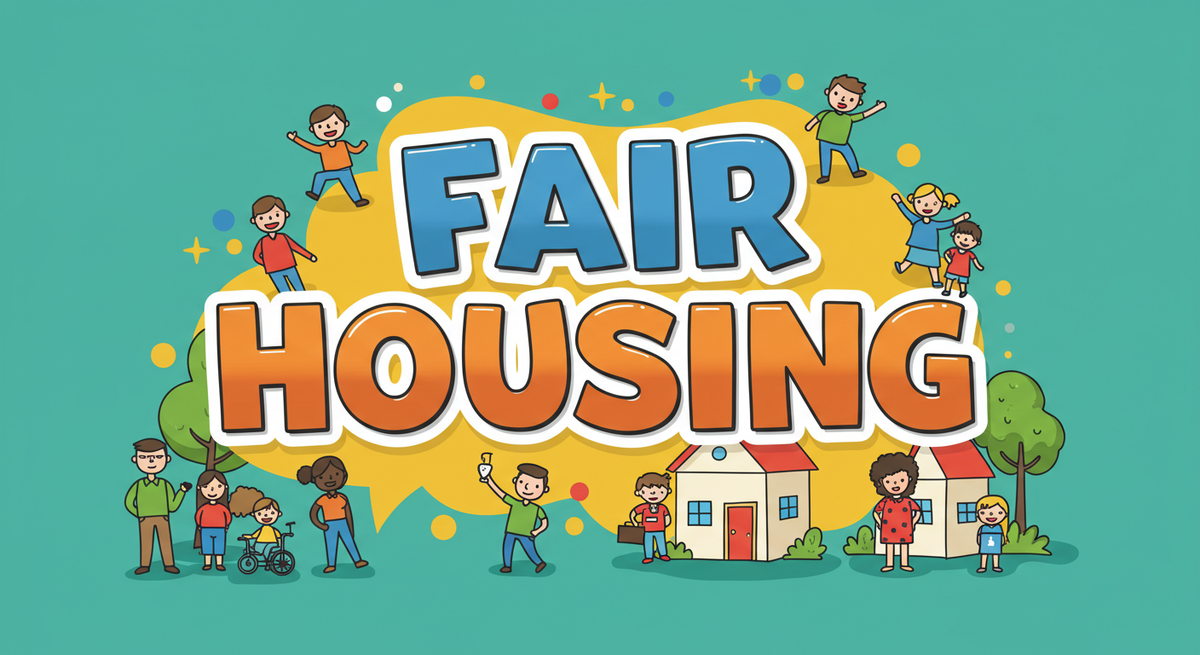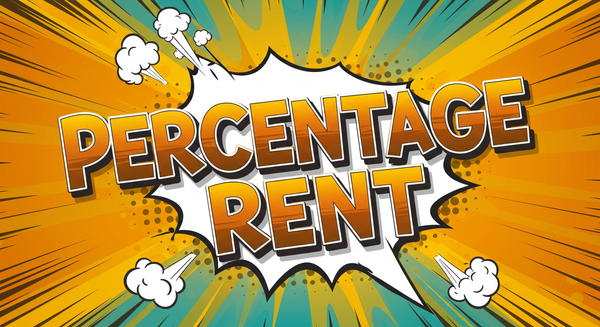Fair Housing in Property Management: The Compliance Guide
The Fair Housing Act establishes federal protections for seven protected classes while also requiring specific accessibility standards for multifamily housing built after 1991

Here's a mind-blowing reality: One property management company recently paid $10.5 million to settle a single Fair Housing violation. That's enough money to buy 50 rental properties in many markets. The scariest part? They weren't trying to discriminate – they simply failed to meet accessibility requirements across their portfolio.
Fair Housing is a foundational law establishing ethical property management requirements that protects both tenants and property owners from discrimination based on protected characteristics. The Fair Housing Act establishes federal protections for seven protected classes while also requiring specific accessibility standards for multifamily housing built after 1991.
As a property manager or landlord, understanding Fair Housing compliance directly impacts your bottom line, legal exposure, and operational success. One misstep can result in devastating financial penalties, damaged reputation, and lengthy legal battles that drain resources for years.
In this article, you'll learn what Fair Housing means in practical terms, how it applies to your daily operations, critical legal requirements, and proven strategies to maintain compliance while running a profitable rental business.
What Is Fair Housing?
Fair Housing is the legal principle that prohibits discrimination in housing based on protected characteristics, ensuring equal access to rental opportunities for all qualified applicants. The Fair Housing Act of 1968, codified at 42 U.S.C. 3601, establishes this fundamental right and creates enforceable standards for property owners and managers.
The law covers most housing types with very limited exceptions. Owner-occupied buildings with four units or fewer, single-family houses sold or rented directly by the owner without an agent, and housing operated by religious organizations represent the narrow exemptions. Everything else falls under Fair Housing protection.
The seven federally protected classes include:
- Race
- Color
- National Origin
- Religion
- Sex (which includes gender identity and sexual orientation, per HUD guidance)
- Familial Status (e.g., families with children under 18, pregnant women, etc.)
- Disability (includes both mental and physical impairments, including HIV/AIDS)
Fair Housing compliance extends beyond simple non-discrimination. It requires proactive steps including reasonable accommodations for disabilities, accessible design standards for new construction, and inclusive marketing practices that reach all potentially eligible groups.
Can a landlord choose the tenant they want to rent to? Absolutely – but only based on legitimate business criteria.
Landlords can select tenants using income requirements, credit scores, rental history, and ability to pay rent. However, selection decisions cannot be based on protected characteristics.
The concept has evolved significantly since 1968. Originally focused on race, color, religion, and national origin, the Act now protects seven federally recognized classes. Many states and local jurisdictions extend these protections further, creating a complex web of compliance requirements that vary dramatically by location.
Impact & Applications
Operational Impact
Fair Housing compliance fundamentally shapes every aspect of property management operations, from initial marketing through lease termination. The financial stakes are enormous – disability-based discrimination alone accounted for 43% of all Fair Housing complaints in 2022, with settlements regularly reaching millions of dollars.
Your property's design, marketing strategy, tenant screening process, and ongoing management practices must all align with Fair Housing requirements.
Properties constructed after March 13, 1991, face specific accessibility mandates including accessible entrances, usable doors, properly positioned environmental controls, and reinforced bathroom walls for future grab bar installation.
Understanding these accessibility standards for common areas is essential for multifamily property owners and operators.
The Justice Department's largest Fair Housing settlement – $10.5 million – involved a property management company that failed to meet accessibility requirements across 210 properties in 26 states. This case demonstrates how compliance failures can compound across portfolios.
Fair Housing Violation Penalties
Criminal history screening presents a particular challenge. Can denying housing based on criminal history violate Fair Housing law? Yes, if screening policies create disparate impact on protected classes, particularly race and national origin. HUD guidance requires individualized assessments considering the nature of the crime, time elapsed, and relationship to tenant safety. Blanket criminal history bans are legally risky and potentially discriminatory.
Marketing and leasing operations require particular attention. Properties with five or more rental units must maintain Affirmative Fair Housing Marketing Plans (AFHMP) that actively reach all potentially eligible groups. You can't rely solely on word-of-mouth advertising – regular media outreach is legally required.
Tenant screening presents daily Fair Housing challenges. Every application decision must be based on consistent, objective criteria that don't create disparate impact on protected classes. This means your screening process, rental criteria, and documentation practices need regular review and updates to maintain compliance.
Fair Housing Horror Stories
Real-World Application
Case Study: Accessibility Accommodation Success in Portland
Challenge: A 50-unit apartment complex received a reasonable accommodation request from a prospective tenant with mobility limitations. The tenant needed a reserved parking space closer to their ground-floor unit and requested permission to install grab bars in the bathroom.
Solution: The property manager immediately implemented their Fair Housing protocol. They reserved a designated accessible parking space within 50 feet of the unit entrance and provided written approval for grab bar installation with specific guidelines for professional installation and restoration requirements upon lease termination.
Outcome: The tenant signed a two-year lease, and the property avoided potential discrimination claims while gaining a satisfied long-term resident. The proactive approach created positive community relations and demonstrated the property's commitment to inclusive housing.
Takeaway: Reasonable accommodation requests are opportunities, not obstacles. Having clear policies and prompt response procedures protects both tenants' rights and your business interests while often creating loyal, long-term residents.
This example illustrates how Fair Housing compliance enhances rather than restricts successful property management. Properties that embrace accessibility often find themselves preferred by a broader tenant base, leading to improved occupancy and reduced marketing costs.
Legal & Compliance Essentials
Understanding Fair Housing law requires recognizing the multi-layered enforcement structure that can impact your property from federal, state, and local levels. The U.S. Department of Housing and Urban Development (HUD) handles administrative enforcement, while the Department of Justice pursues federal lawsuits and criminal proceedings when violations occur.
What are the penalties for violating Fair Housing law? The consequences are severe and escalating. Civil penalties can reach $250,000 for repeat offenders, with unlimited compensatory damages, attorney fees, and court-ordered injunctive relief.
Critical legal pitfalls include:
- Discriminatory advertising language – Avoid terms that indicate preferences or limitations based on protected characteristics
- Inconsistent screening criteria – Apply the same qualification standards to all applicants without variation
- Failure to provide reasonable accommodations – Respond promptly to disability-related modification requests
- Inaccessible common areas – Ensure lobbies, laundry facilities, and parking areas meet accessibility standards
Essential compliance actions:
- Maintain detailed documentation of all tenant interactions and decisions
- Train staff on Fair Housing requirements and update training annually
- Develop written policies for reasonable accommodation requests
- Implement consistent application and screening procedures
Regional variations significantly impact compliance requirements.
- California extends Fair Housing protections to age (40+), ancestry, marital status, medical condition, and source of income.
- Texas became the first state with HUD-approved substantially equivalent Fair Housing law in 1989, creating additional enforcement mechanisms.
- New York includes additional protections for lawful occupation and military status.
May a housing provider charge extra fees for disability accommodations?
No – this violates Fair Housing law. Housing providers cannot charge extra fees or deposits for reasonable accommodations or modifications related to a tenant's disability. This includes service animals, accessible parking spaces, or grab bar installations. The accommodation must be provided at no additional cost, though tenants may be responsible for restoration costs when they move out.
Formal Fair Housing complaints must be filed within one year of the alleged discriminatory act. However, the investigation and legal process can extend for years, making prevention far more cost-effective than reactive legal defense.
Document everything. Comprehensive records including applicant communications, screening decisions, maintenance requests, and accommodation responses provide essential protection in Fair Housing investigations.
Best Practices for Fair Housing Compliance
1. Develop Comprehensive Staff Training Programs
What: Implement mandatory Fair Housing education for all staff members who interact with prospective or current tenants.
Why: Human error represents the greatest Fair Housing risk, and trained staff make better decisions under pressure.
How: The National Association of REALTORS requires two hours of Fair Housing training every three years – adopt this standard as your minimum baseline for all property management staff.
2. Create Standardized Application and Screening Procedures
What: Establish written criteria that apply consistently to every applicant regardless of protected characteristics.
Why: Inconsistent application of rental criteria creates disparate impact liability and discrimination claims.
How: Document income requirements, credit score minimums, rental history standards, and reference verification procedures in writing, then train staff to apply these criteria uniformly without exception.
3. Implement Proactive Accessibility Compliance
What: Conduct regular accessibility audits of your properties and establish procedures for reasonable accommodation requests.
Why: Disability discrimination represents 43% of Fair Housing complaints, making this the highest-risk area for violations.
How: Partner with accessibility consultants to evaluate your properties annually and create template responses for common accommodation requests like service animals, accessible parking, and bathroom modifications.
Does a landlord have to rent to a blind person with a guide dog?
Yes, under Fair Housing law, landlords must make reasonable accommodations for service animals and emotional support animals, even in properties with "no pets" policies. Guide dogs for blind tenants represent a clear reasonable accommodation that cannot be denied or subject to pet fees.
4. Establish Inclusive Marketing Strategies
What: Develop marketing approaches that actively reach diverse communities and avoid discriminatory language or imagery.
Why: Fair Housing requires affirmative outreach, not just neutral advertising practices.
How: Use diverse media outlets, translate materials into local languages, and include accessibility information in all property marketing materials to demonstrate inclusive practices. Understanding the full scope of apartment home management helps ensure comprehensive Fair Housing compliance across all operations.
5. Master Reasonable Accommodation Protocols
What happens if providing a requested accommodation involves costs? The housing provider typically bears reasonable costs for accommodations, but tenants may be responsible for restoration expenses. For example, if a tenant requests grab bars in the bathroom, the landlord provides the modification at no charge, but the tenant may pay for restoration to original condition upon move-out.
Develop clear procedures for evaluating accommodation requests including response timelines, documentation requirements, and approval criteria. Train staff to respond promptly and professionally to avoid delays that could constitute discrimination.
Reasonable Accommodation Request Timeline
Key Questions Answered
What's the difference between Fair Housing and ADA compliance?
Fair Housing focuses specifically on housing discrimination and residential accessibility, while the Americans with Disabilities Act (ADA) covers broader public accommodations. Fair Housing applies to residential properties including common areas, while ADA typically impacts commercial spaces. Both laws often intersect in mixed-use properties where compliance with both standards is required.
How is Fair Housing compliance calculated and implemented?
Fair Housing compliance isn't calculated with formulas – it's implemented through consistent policies, procedures, and training. Success depends on establishing written standards, documenting all decisions, training staff regularly, and responding promptly to accommodation requests. The key metric is zero substantiated complaints, achieved through proactive prevention rather than reactive responses.
Can Fair Housing requirements change during a lease term?
Fair Housing obligations remain constant throughout the lease relationship. However, reasonable accommodation requests can arise at any time, requiring landlords to evaluate and respond appropriately. State and local Fair Housing laws can also expand during lease terms, potentially adding new protected classes or requirements that apply to existing tenancies.
What is considered housing discrimination in rental properties?
Housing discrimination includes any action that treats applicants or tenants differently based on protected characteristics. This encompasses refusing to rent, setting different terms or conditions, providing different services, steering tenants to specific buildings or floors, and retaliatory actions. Discrimination can be direct (explicit preferences) or indirect (policies with disparate impact on protected classes).
Technology Integration for Fair Housing Compliance
Modern property management software can significantly enhance Fair Housing compliance through automated documentation, consistent screening protocols, and centralized record-keeping systems.
Essential technological tools include:
- Automated screening platforms that apply criteria consistently across all applications
- Digital documentation systems that maintain comprehensive records of tenant interactions
- Centralized communication platforms that track accommodation requests and responses
- Training management systems that ensure staff complete required Fair Housing education
Case Study: Automated Compliance in Seattle A property management firm implemented digital screening software that automatically applied income and credit requirements to all applicants. The system eliminated human bias in initial screening while maintaining detailed logs of all decisions. Result: Zero Fair Housing complaints over three years while processing 2,000+ applications.
State-by-State Variations in Fair Housing Law
Fair Housing compliance varies dramatically across jurisdictions, creating complex requirements for property managers operating in multiple states.
California extends protections to age (40+), ancestry, marital status, medical condition, sexual orientation, and source of income. Properties cannot discriminate against Section 8 voucher holders. This intersection of affordable housing programs and Fair Housing compliance creates additional complexity for California property managers.
Texas was the first state approved by HUD as having substantially equivalent Fair Housing law in 1989. The state provides additional enforcement mechanisms through the Texas Department of Housing and Community Affairs.
New York includes protections for lawful occupation, military status, and domestic violence survivors. The state also prohibits source of income discrimination in most jurisdictions.
Florida follows federal minimums but many local jurisdictions extend protections to sexual orientation, gender identity, and source of income.
Property managers operating across state lines must understand and comply with the most restrictive applicable laws, making comprehensive training and documentation systems essential. Modern build-to-rent communities often face these multi-jurisdictional compliance challenges as they expand across state lines.
Frequently Asked Questions
What are the penalties for violating the Fair Housing Act?
Fair Housing violations carry severe financial penalties including civil penalties up to $250,000 for repeat violations, unlimited compensatory damages, attorney fees, and court-ordered injunctive relief. The Justice Department's largest settlement reached $10.5 million in a single disability discrimination case. First-time violations face penalties up to $21,039, with escalating amounts for repeat offenders that can exceed $105,194 per violation.
Can a landlord choose the tenant they want to rent to?
Landlords can choose tenants based on legitimate business criteria like income, credit history, rental references, and ability to pay rent. However, selection decisions cannot be based on protected characteristics including race, religion, disability, familial status, or other Fair Housing protected classes. All selection criteria must be applied consistently to every applicant.
Can charging extra fees for disability accommodations violate Fair Housing law?
Housing providers cannot charge extra fees or deposits for reasonable accommodations or modifications related to a tenant's disability. This includes service animals, accessible parking spaces, or grab bar installations. The accommodation must be provided at no additional cost, though tenants may be responsible for restoration costs when they move out.
Does criminal history screening violate Fair Housing protections?
Criminal history screening can violate Fair Housing law if policies have a disparate impact on protected classes, particularly race and national origin. HUD guidance requires individualized assessments considering the nature of the crime, time elapsed, and relationship to tenant safety. Blanket criminal history bans are risky and potentially discriminatory.
What should you do if you think Fair Housing rights have been violated?
File complaints within one year of the alleged discrimination with HUD, state fair housing agencies, or through private lawsuits in federal or state courts. Document all incidents with dates, times, witnesses, and evidence. Contact local fair housing organizations for assistance with complaint preparation and legal resources.
What happens if providing a requested accommodation involves costs?
Housing providers typically bear reasonable costs for disability accommodations, but the definition of "reasonable" depends on the property's financial resources and the accommodation's nature. Tenants may be responsible for restoration costs when they move out. Accommodations that fundamentally alter the property's nature or create undue financial burden may be denied.
Conclusion & Resources
Fair Housing compliance represents both a legal necessity and a competitive advantage in today's property management landscape. Key takeaways for successful compliance:
- Proactive training and documentation prevent costly violations – The $10.5 million settlement demonstrates the financial risk of non-compliance
- Accessibility compliance enhances property value – Modern tenants expect inclusive communities with universal design features
- Consistent policies protect both tenants and property owners – Written procedures eliminate discrimination risks while streamlining operations
Ready to optimize your property management approach? Fair Housing compliance doesn't have to be complicated when you have the right systems and training in place. Properties that embrace inclusive practices often experience higher tenant satisfaction, reduced turnover, and stronger community relationships.
Success in Fair Housing compliance stems from a combination of clear standards, technological efficiency, and a commitment to fair, transparent practices. The investment in proper training, systems, and procedures pays dividends through reduced legal risk, improved tenant relations, and enhanced property reputation.
Explore our complete resource library for additional compliance tools, staff training materials, and operational best practices that protect your investment while serving diverse tenant communities effectively.
Essential Resources:
- HUD Office of Fair Housing and Equal Opportunity
- State Fair Housing Agencies for local compliance requirements
- National Association of Housing Management Companies (NAHMA) certification programs
Legal Disclaimer: The information on this website is sourced from publicly available materials and is provided for general informational purposes only. It is not intended as legal, financial, or accounting advice. LandlordDoc.com makes no guarantees about the accuracy or completeness of the information and assumes no liability for any errors, omissions, or outcomes related to its use.





